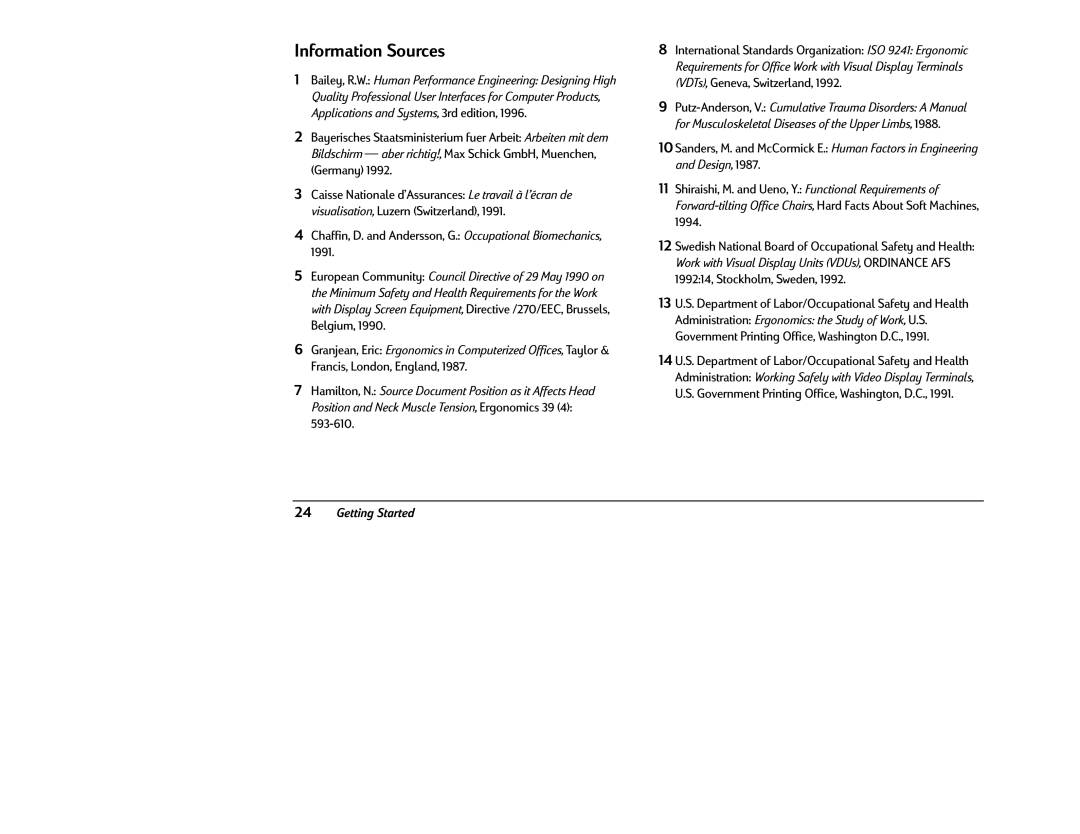InforApplications Sources
1 QualityBailey,RProfessionalUser.W.:HumanandSystems,PerformanceInterfaces3rdedition,Engineering:for1996Computer.DesigningProducts,High
2(Germany)Bildschirmayerischesó1992Staatsministeriumaber.richtig!,MaxfuerSchickArbeit:GmbH,Muenchen,Arbeitenmitdem
3visualisation,aisseNatioaleLuzerndíAs(Switzerland),1991urances:Letravail.‡líÈcrande
41991Chaffin,.D.andAndersson,G.OccupationalBiomechanics,
5Belgium,withtheEuropeanMinimumDisplay1990Community:ScreSaf.eEquipment,andCouncilHealthDirecRequirementsveof/270/EEC,29forMaythe1990Brussels,Workon
6 Granjean,Frncis,London,Eric:ErgonomicsEngland,1987inComputerized. OficesTaylor&
7
8(VDTs),RequiremntsInternatioMusculoskeletalGeneva,StandardsforSwitzerland,OfficeWorkOrganization:1992with.VisualISODisplayTerminals9241:Ergonomic
9
10 andhiraishi,anderDegn,.and1987McCrmickE. .:HumanFactorsinEngineering
11
12 1992:14,WorkSwedishwithStockholm,NationalVisualDisplayBoardSweden,ofUnitsOccupational1992(VDUs),. ORDINANCESafetyandAFSHealth:
13GovernmentAdministration:U.S.DepartmentPrintingErgonoms:ofLabor/OccupationalOffice,theWashingtonStudyofSafetyWork,D.C.1991Uand.S..Health
14UAdministration:.S.GovernmentDepartmentWokingofintingLabor/OccupationalSafelyOffice,withWashington,VideoSafetyDisplay.andC.Terminals,1991Health.
